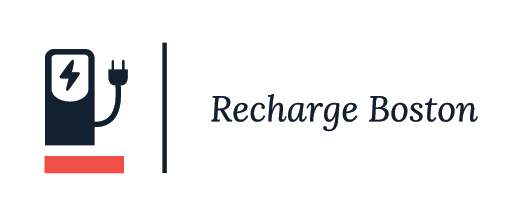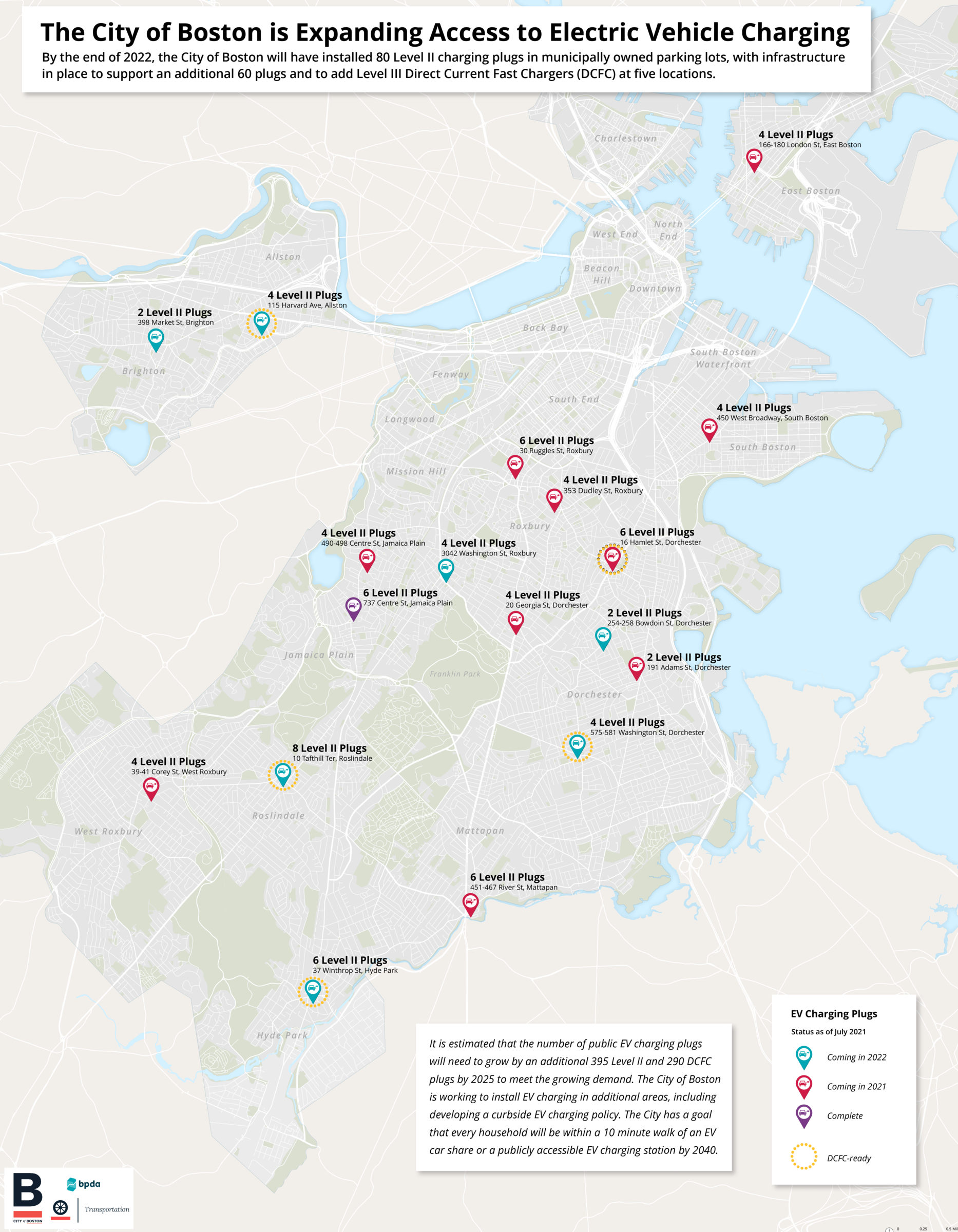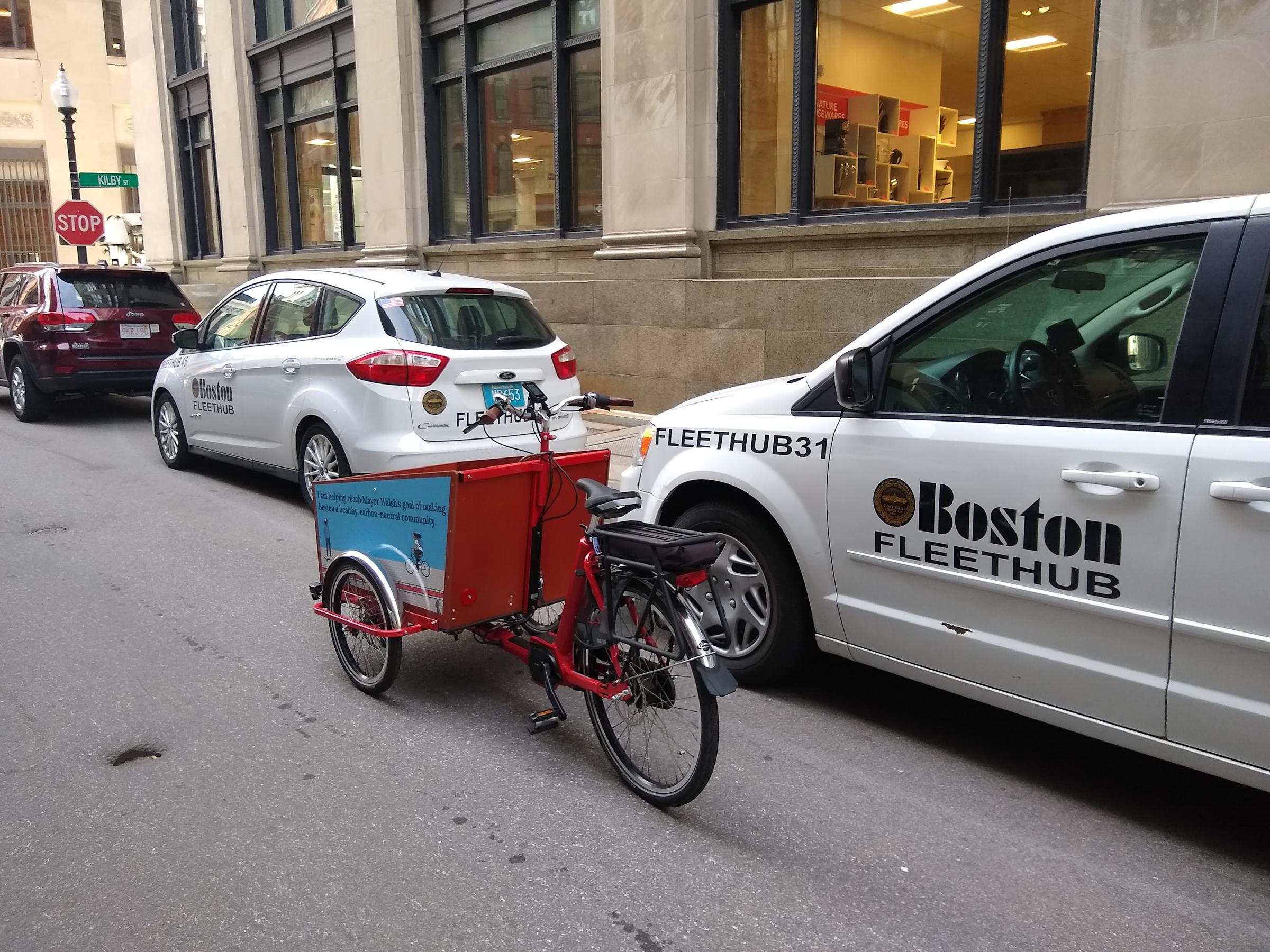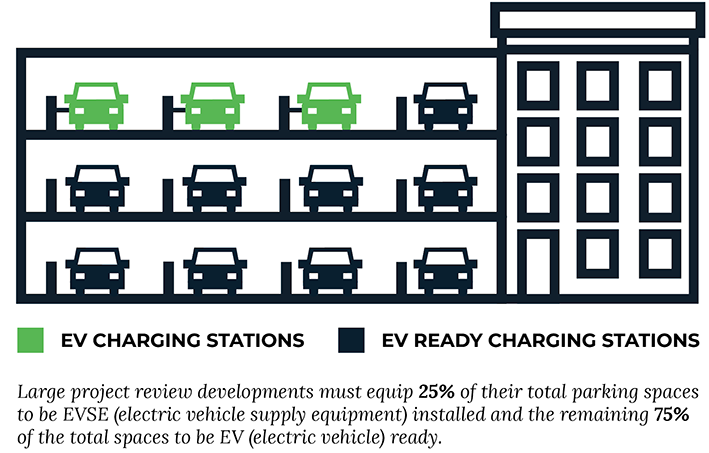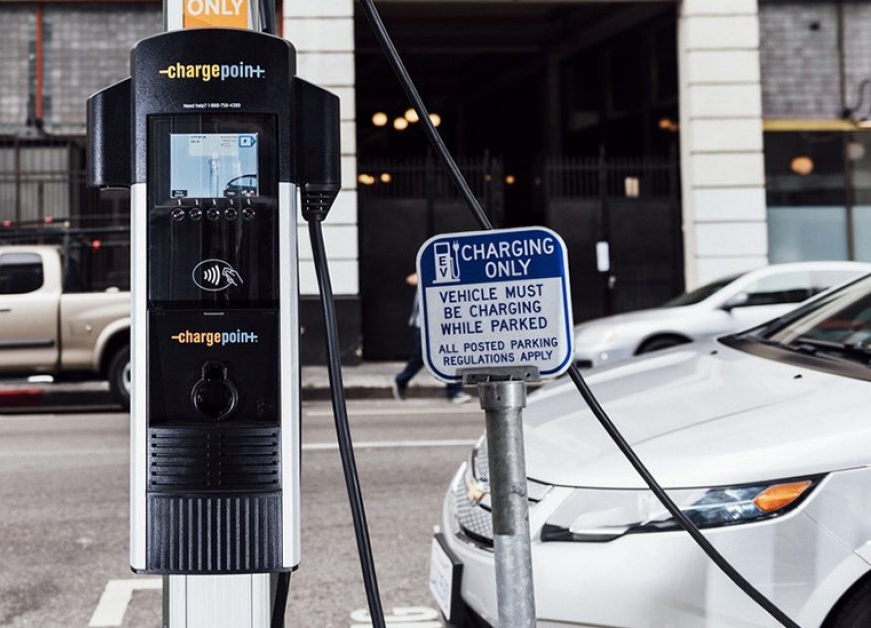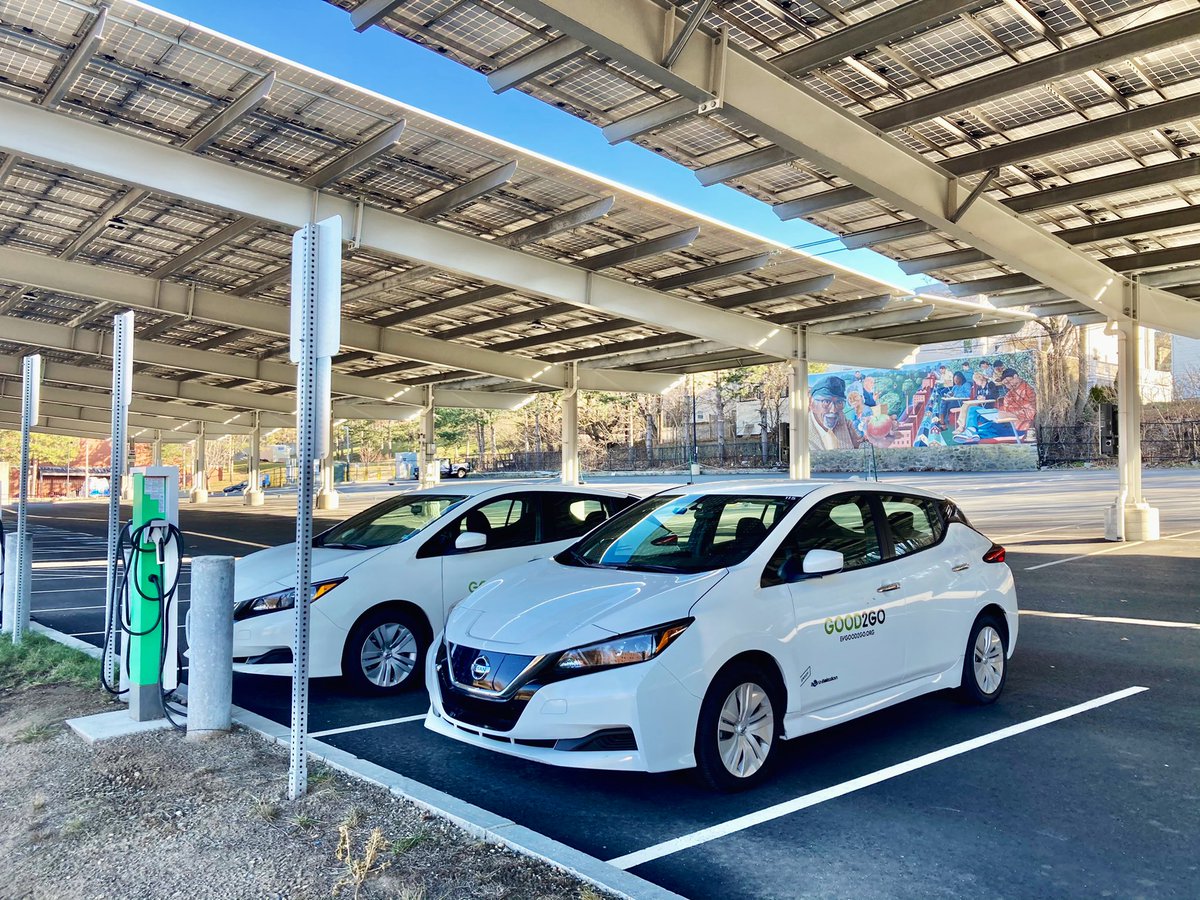Recharge Boston: Boston's Zero Emission Vehicle Program
First, we need people who drive alone to take transit, carpool, bike or walk to work instead. To reach our carbon neutrality goals, any remaining vehicles must be electric or zero-emission vehicles.
Electric vehicles are cars or other vehicles powered completely, or in part, by electricity. They produce lower emissions and less noise than vehicles powered by gasoline, diesel, and other fossil fuels. Electric vehicles can include electric assisted small vehicles, including electric-bycicles and electric-foot scooters.
We have compiled information into 'how-to' documents. These documents answer questions on owning and operating an electric vehicle. Please contact us if you have more questions.
Zero Emission Vehicle Initiatives
ZEV InitiativesThe City of Boston is expanding the number of publicly accessible EV charging stations across the City. Some of these stations will be owned and operated by the city, while others will be public-private partnerships. These two different approaches will help us achieve our goal of having every Boston resident live within a 5-minute walk of an EV charging station.
Model 1: License the Right-of-Way (public/private partnership)
- Our two (2) vendors, itselectric and Greenspot, will install and operate these stations. These will be no cost to the City.
- The City has a say on how these stations will be operated, and what fees are charged.
- These stations are low profile, minimizing the visual and physical impact on sidewalks.
Model 2: Public Ownership at City Assets
- The City is installing 96 curbside electric vehicle (EV) charging ports at 24 locations throughout neighborhoods.
- Our vendor, Better Together Brain Trust in partnership with Flo, will be handle the hardware, installation, and maintenance of these stations.
- The Flo charging stations are designed for curbside use, up to 19.2kW an hour.
- Majority of these locations are adjacent to public amenities, including parks, playgrounds, libraries, and within walking distance of commercial areas; except for where residents have requested, no stations are located adjacent to residential property.
We are mitigating impacts to parking. Where possible, surrounding parking regulations will be adjusted to offset any real or perceived loss of parking, such as residential permit parking, business parking, and parking for libraries, parks, and other public resources.
For more information, visit https://www.boston.gov/transportation/curbside-ev-charging.
To increase access to public EV charging, the City of Boston is installing EV charging stations in some of our municipal parking lots.
Parking in our municipal parking lots is free. EV charging is $0.25/kWh. There is a $1.00 per hour inactive charge once your charging has completed.
- Lot 1 - 30 Ruggles Street, Roxbury (available for use)
-
Lot 2 - 398 Market Street, Brighton (coming soon)
-
Lot 3 - 115 Harvard Avenue, Allston (coming soon)
-
Lot 5 - 166-180 London Street, East Boston (available for use)
-
Lot 6 - 737 Centre Street, Jamaica Plain (available for use)
-
Lot 8 - 10 Tafthill Terrace, Roslindale (available for use)
-
Lot 10 - 39-41 Corey Street, West Roxbury (available for use)
-
Lot 12 - 37 Winthrop Street, Hyde Park (coming soon)
-
Lot 13 - 451-467 River Street, Mattapan (available for use)
-
Lot 15 - 254-258 Bowdoin Street, Dorchester (coming soon)
-
Lot 17 - 575-581 Washington Street, Dorchester (coming soon)
-
Lot 18 - 450 West Broadway, South Boston (available for use)
-
Lot 19 - 16 Hamlet Street, Dorchester (available for use)
-
Lot 20 - 191 Adams Street, Dorchester (available for use)
-
Lot 23 - 20 Georgia Street, Dorchester (available for use)
-
Lot 30 - 353 Dudley Street, Roxbury (available for use)
-
Lot 32 - 490-498 Centre Street, Jamaica Plain (available for use)
-
Lot 33 - 3042 Washington Street, Roxbury (coming soon)
Knox is a city owned cargo e-trike. A cargo e-trike is a three wheeled bicycle with electric battery assist and a large compartment for carrying items. We wanted to help City employees lead by example while conducting City business. We hypothesized that for short-distance trips, the trike would be a reasonable replacement for a car or truck. For more information on the program visit Knox: The Cargo E-Trike.
Boston's Zero-Emission Vehicle Roadmap
The City of Boston has released its Zero-Emission Vehicle Roadmap. The long-term strategy accelerates the adoption of electric vehicles and other zero-emission transportation.
Executive Summary Zero-emission roadmapEV readiness policy for new developments
Two types of new developments must comply with the City's EV Readiness Policy For New Developments:
- New developments that prompt the Transportation Access Plan Agreement (TAPA) process
- All projects located within South Boston and Downtown parking freeze zones
This policy applies to any development that receives Boston Planning and Development Agency Board approval after March 7, 2019 and to any development that submits a parking freeze permit application to the Air Pollution Control Commission after March 20, 2019.
- 25 percent of parking spaces be "EVSE (electric vehicle supply equipment) installed", and
- the remaining 75 percent of parking spaces be "EV (electric vehicle) Ready" for future installation, to the maximum extent practicable.
Want to learn about how your project can best meet this policy? Contact btd@boston.gov.
Suggest a Location for Public EV Charging
The City is expanding access to public EV charging stations. Use this form to suggest a location for public EV charging. This is not an application to have an EV charging station installed. This is for informational purposes only and helps us better understand the demand for EV charging.
Locate EV Charging Stations
Find a place to charge your vehicle
Latest News
Mayor Wu Announces Expanded Curbside Charging for Electric Vehicles
Building new curbside charging stations will create more access for residents to charge their electric vehicles, especially those without private parking or access to a driveway or garage.
Installation of additional EV charging stations announced
Mayor Wu announced several new steps to reduce vehicle emissions by accelerating the adoption of electric vehicles and other low-emission transportation options in Boston.
Boston's Zero Emission Roadmap released
The long-term strategy accelerates the adoption of electric vehicles and other zero-emission transportation.
Coming soon: Boston's first income-tiered electric vehicle car share
The City of Boston is part of a team that is piloting the City's first income-tiered electric vehicle car sharing program.
Upcoming Events
Upcoming EventsThere are no related events available at this time!
Past Programs
Past ProgramsIn the summer 2020, the City of Boston released an Electric Cargo Bike Request for Information (RFI). We wanted to gain information on how e-cargo bikes could fit into our City's delivery landscape. We received 13 responses that included information on
- e-cargo bike types
- data management
- operational logistics
- policy support, and
- planning.
For more information read the post solicitation report.
The City of Boston, through the Bloomberg Philanthropies American Cities Climate Challenge, has contracted with Nelson/Nygaard. They will design and potentially launch an e-cargo bike delivery pilot program. Over the next few months the City will work to identify:
- regulatory
- administrative, and
- operational challenges to e-cargo bike delivery within the City.
We will also identify potential program partners and pilot locations. The City is looking to spring 2022 at the earliest for the launch of a pilot program.
Good2Go is an electric vehicle (EV) car-share program with sliding scale rates. It supports affordable access to clean transportation options in Nubian Square, Roxbury, and surrounding neighborhoods.
For a list of locations visit evgood2go.org.
The program is funded with a grant from the Massachusetts Clean Energy Center. It's a collaboration between the City of Boston, E4TheFuture, Eversource, the Metropolitan Area Planning Council, and Nuestra Comunidad.
The primary goal of the program is to serve local residents and businesses. Individuals of any incomes will be able to use the service, and those who qualify with lower incomes will pay a lower rate. Providing access to shared electric vehicles means participants will become more familiar with operating an EV, and be able to make a comfortable, safe, and environmentally friendly transportation choice.
The City Boston is partnering with Good2Go by locating vehicles in our municipal parking lots. The expansion of EV car sharing is included in the City’s Climate Action Plan and Zero-Emission Vehicle (ZEV) Roadmap. Both of these initiatives outline a multifaceted strategy for citywide ZEV deployment. The City’s goal is for 100% of residents to be within a 10-minute walk of an EV car-share facility or a public EV charger.

